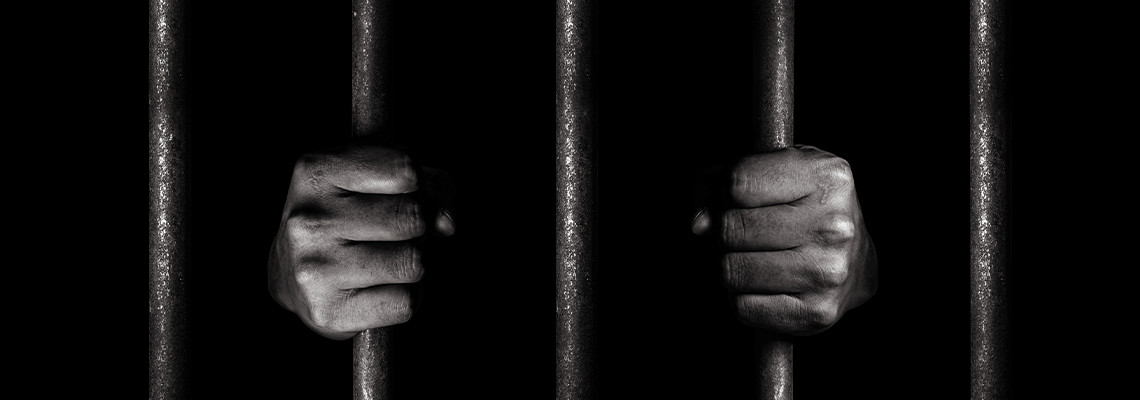Through It All Reach Out Today

False Arrests Due to Racial Profiling
If you’ve ever been arrested, regardless of your guilt or innocence, you know how stressful and traumatic the entire process can be. You’ll be searched, your belongings will be taken and inventoried, and then you’ll be forced to go to a police station where you’ll be booked and await your fate once the prosecution’s office consults your file. This is a harrowing experience for anybody, but what can make it even more agonizing is if you were the victim of racial profiling. If this has happened to you recently and you believe the police made a false arrest based on your race, ethnicity, religion, or national origin, reach out to us at the Denning Law Firm, LLC. We’re committed to showing each of our client's trust and respect and standing up for your civil rights. We’re able to serve our community members in both Kansas City, Missouri, and Kansas City, Kansas including the Overland Park area.
What is Probable Cause for Arrest?
Whenever a law enforcement officer makes an arrest, they must do so with probable cause. However, defining what exactly constitutes probable cause can be more difficult than it seems. Essentially, it means that a police officer must use objective standards when evaluating the evidence or circumstances of making an arrest. It is more than merely suspecting someone has committed a crime, but by definition, it will always be done with less evidence than knowing a suspect is guilty beyond a reasonable doubt. The officer must have a sincere belief that the suspect has committed a crime and they must be able to point to the objective conditions that inform that belief.
For example, let’s imagine that a store was robbed and the police interview the owner of the store who tells them the perpetrator was a middle-aged woman with blond hair wearing a red shirt, who took two stereos and drove away in a tan SUV with no license plates. Twenty minutes later, another officer sees a car matching that description in the vicinity being driven by a middle-aged blond woman wearing a red shirt. The officer would now have probable cause to pull the car over and if there was merchandise matching the description in the car they could make an arrest.
It’s also worth noting that the police officer is not the final arbiter of what constitutes probable cause—a judge is. This means that after an arrest has been made a judge will look at the same evidence that was used and decide if those facts justify the arrest. If they decide that there wasn’t probable cause, then the arrest will be overturned. It’s also possible that at the time of the arrest, the officer did have probable cause, but it was only later discovered that it did not exist. This extra level of analysis is an essential component of our criminal justice system and helps ensure that citizens' rights are being upheld.
Understanding Racial Profiling
Unfortunately, sometimes police officers make arrests with no probable cause and these are often due to the unethical practice of racial profiling. Racial profiling occurs when you’re targeted for an arrest or are suspected of committing a crime based on your race, ethnicity, religion, or national origin. This can happen in all areas of law enforcement but is seen most commonly in traffic and pedestrian stops, on whom officers decide to perform a body frisk, or about whose car to search. In these circumstances, the officer may have no other evidence to go on besides your race or ethnicity. Or, they may practice discrimination or harassment towards those who’ve they’ve detained for a minor infraction such as speeding. Either way, this practice is illegal and violates your civil rights.
Filing a Civil Rights Claim
If you feel you’ve been arrested unfairly due to racial profiling, you may have the grounds to file a civil rights claim, called a Section 1983 lawsuit. These lawsuits are used to seek either monetary damages or an injunction for the defendant. A successful case will have to prove that the officer acted “under color of law,” which means they were acting under the authority of the state (like a police officer or jail guard) and that in this capacity, they violated your federal civil rights. Working with a criminal defense attorney, you’ll then decide the specific violation which could relate to the First Amendment, Fourth Amendment (that protects you against unreasonable searches and arrests), Eighth Amendment, or Fourteenth Amendment.
We’ll Fight to Protect Your Rights
At the Denning Law Firm, LLC in Kansas City, Missouri we take racial profiling cases very seriously and are committed to being your partner from beginning to end. If you need help fighting an unwarranted arrest and feel you have grounds for a civil rights claim based on racial profiling, contact our office today to set up a consultation.
